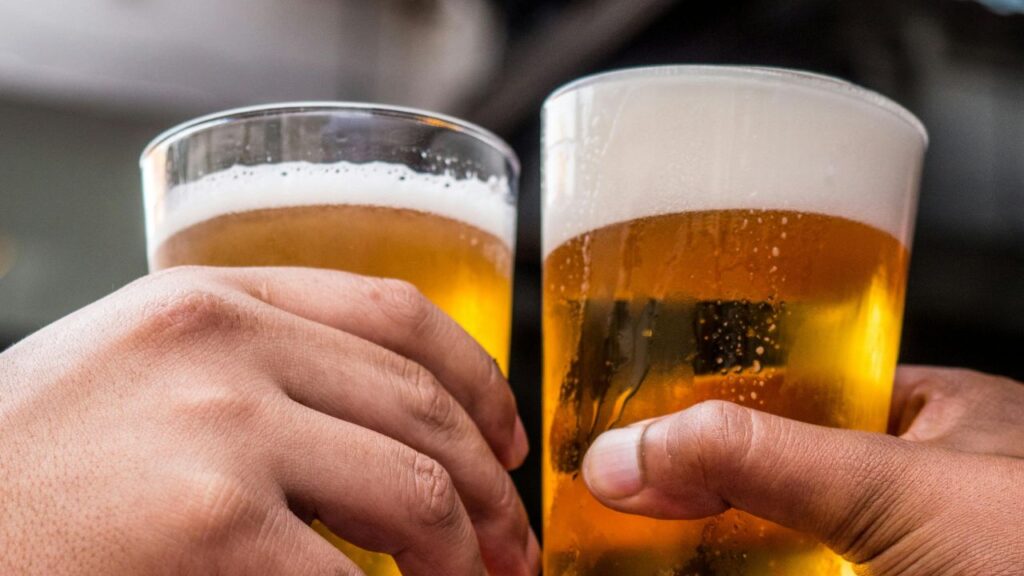Alcohol’s impact on body weight extends far beyond just the calories in your drinks. Understanding this relationship can help inform healthier choices and support successful recovery from alcohol use disorder. Let’s explore the complex ways alcohol influences weight management and overall health.
The Hidden Calories in Alcoholic Beverages
Alcoholic drinks pack a surprising caloric punch. A single gram of alcohol contains 7 calories – nearly twice the calories per gram of protein or carbohydrates. Consider these common drinks:
- A 12-ounce beer contains 150+ calories
- A 5-ounce glass of wine holds about 120 calories
- A 1.5-ounce serving of distilled spirits averages 100 calories
- Mixed drinks can exceed 500 calories per serving
These “empty calories” provide no nutritional value while significantly increasing daily caloric intake.
Alcohol’s Effect on Your Metabolism
Alcohol dramatically impacts how your body processes nutrients and stores fat. When you consume alcohol, your body prioritizes metabolizing it over other substances because it can’t store alcohol like it does proteins, carbohydrates, and fats.
This metabolic priority creates several effects:
- Your body temporarily stops fat burning to process alcohol
- Other nutrients are more likely to be stored as fat
- Your liver focuses on alcohol detoxification instead of its normal metabolic functions
Hormonal Disruption and Weight Gain
Alcohol consumption affects various hormones that regulate weight and appetite:
Ghrelin and Leptin
Alcohol can increase ghrelin (the “hunger hormone”) while decreasing leptin (the “satiety hormone”). This hormonal imbalance often leads to increased appetite and overeating.
Cortisol
Regular drinking elevates cortisol levels, the stress hormone associated with increased belly fat storage and cravings for high-calorie foods.
Impact on Food Choices and Eating Habits
Alcohol affects not just how much you eat, but what you choose to eat:
- Reduced inhibitions lead to poor food choices
- Alcohol stimulates appetite, particularly for high-fat foods
- Late-night eating becomes more common
- Next-day hangover cravings often favor greasy, calorie-dense foods

The Dehydration Factor
Alcohol’s diuretic effect causes dehydration, which can:
- Slow metabolism
- Reduce exercise performance
- Create false hunger signals
- Decrease the body’s ability to burn fat
Weight Benefits of Sobriety
Getting sober can lead to significant improvements in weight management:
- Natural appetite regulation returns
- Better food choices become easier
- Sleep quality improves, supporting healthy weight
- Energy increases, enabling more physical activity
- Hormonal balance gradually restores
Physical Health Support at Destination Hope
At Destination Hope in Fort Lauderdale, we understand the complex relationship between alcohol use and physical health. Our comprehensive treatment program includes:
- Nutritional counseling and education
- Fitness programs tailored to recovery
- Wellness workshops
- Medical supervision during detox
- Healthy meal planning guidance
- Stress management techniques
Long-term Success Through Comprehensive Care
Weight management is just one aspect of the many health improvements possible through sobriety. Our program addresses both the physical and psychological aspects of recovery, providing tools for lasting success.
Take the First Step
If you’re concerned about alcohol’s impact on your health and weight, help is available. Contact Destination Hope today at 954-302-4269 to learn more about our comprehensive treatment programs. Our caring professionals are ready to support your journey to better health 24/7.

